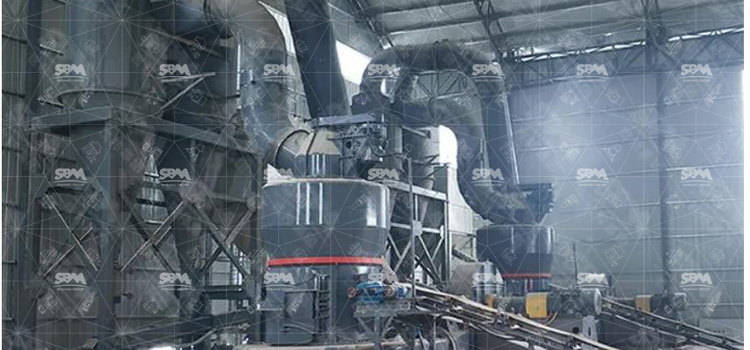The debugging quality of the mill will directly affect the operation status of the later mill. The following three principles should be followed in the commissioning of the mill.
The pulverizer uses a material bed for grinding, so a stable material layer is very important to the safe operation of the vertical mill. Under normal conditions, the thickness of the material layer on the grinding disc is about 30-60mm. At this time, the mill runs smoothly, the grinding sound is soft, and the amount of circulating materials inside and outside the mill remains basically unchanged. If the material layer is too thin, the mill will vibrate greatly; if the material layer is too thick, the load of the mill will be large and the grinding efficiency will be low. In severe cases, it will cause severe vibration.
During the operation of the pulverizer, the feed volume, grinding capacity, air delivery volume, slag discharge volume or external circulation should be in a balanced state. In the case of a certain amount of feed, if the grinding capacity is insufficient, a large amount of spit spit will be caused, and the spit spit will become more and more. At this time, the working pressure of the hydraulic station should be appropriately increased (adjust the overflow pressure of the overflow valve) In order to enhance the grinding capacity or appropriately reduce the feeding amount; on the contrary, if the grinding ability is too strong, the material layer will gradually thin and eventually cause the mill to vibrate. At this time, the working pressure of the hydraulic station should be appropriately lowered or the feeding amount should be increased. Another situation is that if the grinding capacity is suitable but the air conveying capacity is insufficient, a large amount of slag may also be caused, and the content of fine powder is relatively large. At this time, the air volume should be increased and the conveying capacity should be enhanced. Therefore, during the operation of the vertical mill, the principle of material balance is used to discover the problems in the vertical mill operation in advance, so that corresponding measures can be taken to prevent unnecessary shutdowns and debugging failures.
The mill generally adopts negative pressure operation, and its material transportation, grading, and drying all require a large amount of hot air. The air volume should first be able to meet the requirements of conveying materials. If the air volume is too small, a large amount of qualified fine powder cannot be transported out in time; too large air volume will not only cause energy waste, but also cause the product to be thick. The wind temperature should be determined according to the moisture content of the material entering the mill. The wind temperature should be increased when the moisture is large, and the wind temperature should be lowered when the moisture is small, but the wind temperature should be less than 350℃ when entering the mill. (Excessive air temperature will cause damage to the vertical mill) In addition, in order to prevent condensation (condensation) in the bag filter of the mill, the mill air temperature should be controlled within the range of 80-100 ℃.
Engineer one-to-one for you, draw up plans in time, and provide investment estimates in time!
Maybe You're Interested
Bentonite Mining Processing Plant
Granite Aggregate Grinding Machine
Gypsum Grinding By LM150K-170X,40TPH For Gypsum Board
The Different Between Calcium Carbonate Powder And Titanium Dioxide